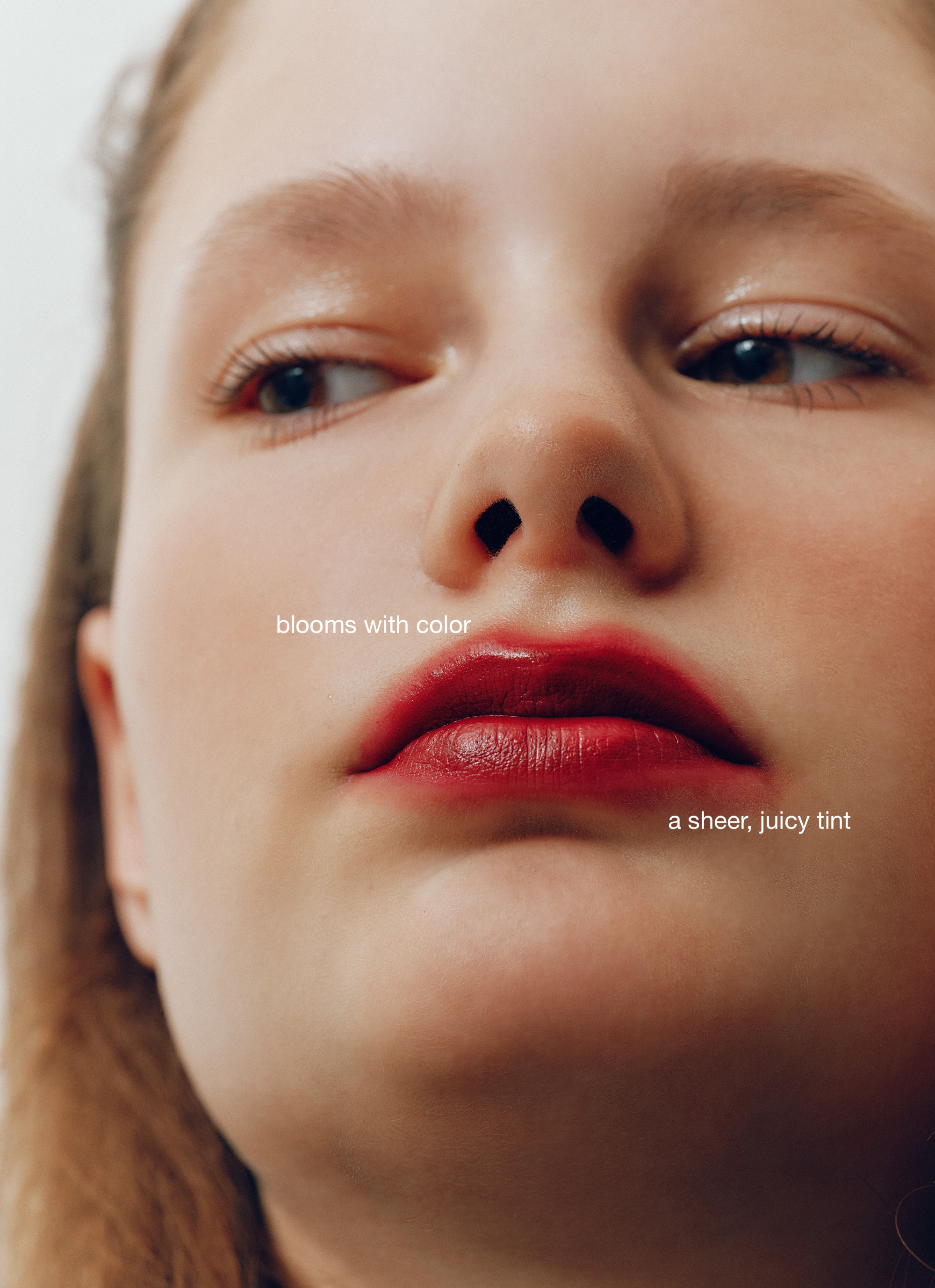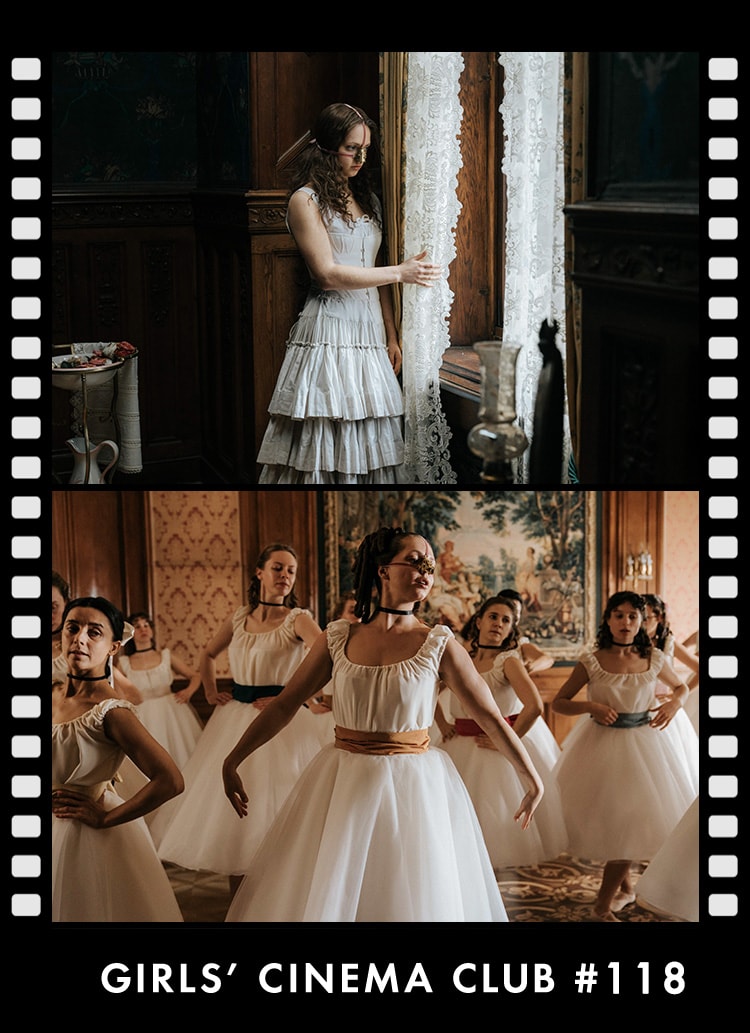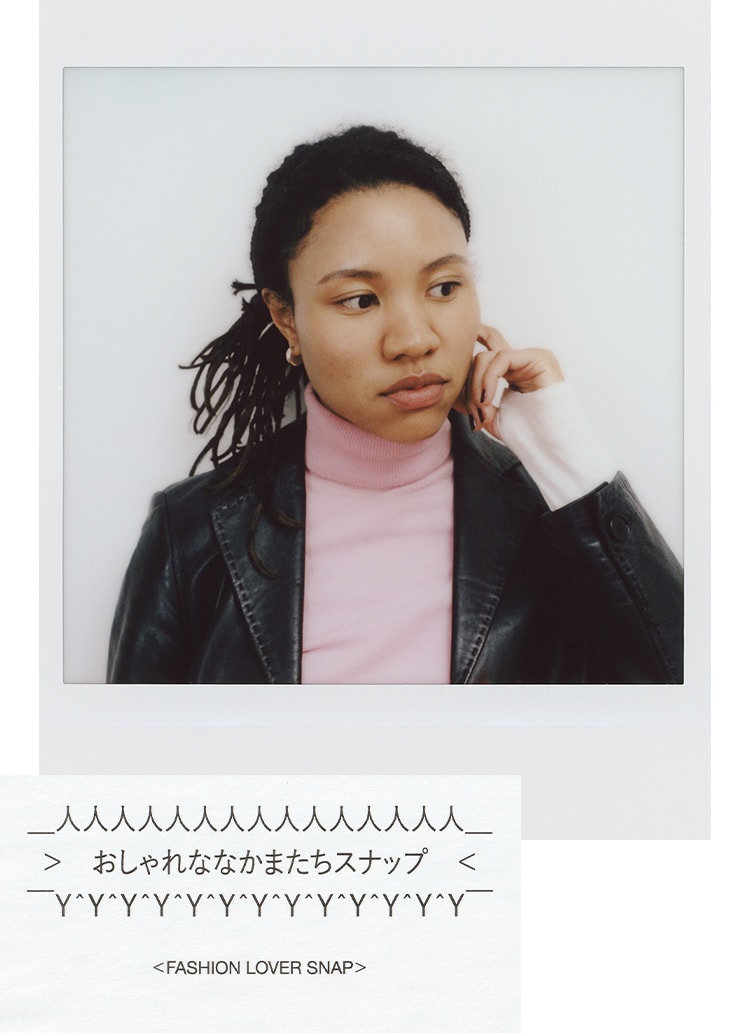In the Corona disaster, going abroad has become a distant thing in itself. However, when you can't go abroad, it is human nature to want to go even more. Don't you all want to travel abroad very badly now? So, until that day arrives, I think it is the role of the media to provide you with a variety of information about the other side of the ocean. This is the fourth installment of the Series by Shumpei Seki, who is active in Paris.
Photo&Text_Jumpei Seki
Shohei Seki
FASHION IMPROVER
Born in Tokyo in 1979. Based in Paris, he works as a Fashion Improver to enhance the value of various companies in Japan and abroad. His work ranges from directing stores and brands to managing joint exhibitions and other events. In October 2019, he will open his own select store "PARKS Paris" in the 16th arrondissement, one of the most exclusive areas in Paris.
Instagram:sekijumpei
Vol.4_BRUT
My name is Seki from Fashion Improver, and I've been living in France for almost 6 years since I suddenly moved here in my mid-30's. I'm not fluent in French, but I'm having a good time every day. I'm a middle-aged man who loves fashion, and I'm enjoying my life in Paris. In this project, I would like to introduce some of the wonderful stores that this middle-aged fashion lover has encountered in Paris, along with the people who are involved with them. I hope to share with you the charm of Paris as I, Seki, a HOUYHNHNM's reader like you, have seen it.
This is the fourth installment of this Series. In this installment, we will introduce some of the leading vintage shops in Paris.
He started his business with an appointment-based showroom, "Brut (BRUT)The owner of "The Basement", Paul's secret basement in Paris. I would like to start today's interview from here.
Paul Ben Chemhoun
Born in Lyon. Influenced by his grandfather and father, he developed an interest in vintage clothing from an early age. After a career in architecture, he started the appointment-only BRUT SHOWROOM in 2016, and in 2019 will open a store of the same name in his current location.
Bonjour, Paul! It's amazing to see so many used clothes in the basement of a regular apartment.
Paul: This is a showroom that we rent separately from the store, and we mainly rent it out.
It's spectacular. What kind of people come to rent it? Stylists?
Paul: That's part of it, but I think a lot of the designers are from maisons and brands. I think it's for design reference as an archive.
I guess there is a demand for this kind of service because good vintage is in a depleted state and expensive nowadays.
Paul: Yeah, and I also have a lot of stuff here that I don't want to sell, so it's better to rent it out.
I see. So it's a mutually beneficial service.
Paul: Yes, I think so.
I'm interested in how Paul got into this field in the first place, so I'd like to hear a lot about it first.
Paul: Okay.
Where is Paul from in France?
Paul: I was born and raised in Lyon.
Whoa, last time I checked...DISTANCEI'm with the "Vintage" team. When did you first become interested in vintage in the first place?
Paul: My grandfather sold military surplus at flea markets on weekends in Lyon from the 1970s to the 1990s.
Yeah, yeah, yeah.
Paul: So my father grew up helping him, and then he opened a Surplus Shop in Lyon. So I was helping him with that.
I see. Three generations, father and son. That's very interesting.
Paul: Because of that, I started getting interested in vintage when I was 12 years old, and my father and I would go to warehouses to stock up.
That's amazing! In a way, it's a gifted education.
Paul: When you are a kid, you learn everything very quickly, so I absorbed more and more.
You were interested only in military wear, not other vintage items?
Paul: Yes, I still have no concept of being a collector, I am more interested in the structure of clothing. So I was naturally drawn to military wear.
So it's like learning from military wear.
Paul: I don't like meaningless design. I believe that beauty comes from functionality.
I totally agree. So what were you doing before you started Brut?
Paul: I studied architecture and then came to Paris to work as an assistant for a photographer specializing in architecture. His studio was on the same street as 1LDK Paris.
I think we might have had a near miss back then...you started your first "Brut Showroom" in 2016, right? I saw that in an Instagram post the other day (laughs).
Paul: I was still working in architecture at the time, so I started it as a part-time job, just nights and weekends.
-The place is different from here, isn't it?
Paul: Yes, it's not too far from here. We rented a space in the basement at that time as well, and we did it by appointment only.
I don't remember which magazine it was, but I remember reading an article about it in a Japanese magazine at the time. And when did you open the store in your current location?
Paul:That was just two years ago. We had started renting out our products to designers and our web store was getting off the ground, so we decided to open a store where we could better express our world view.
What does BRUT mean?
Paul: Meaning? Paul: It means "raw." It means not adding anything.
Has the name been the same since the first showroom?
Paul: Yes, it is.
What is the concept behind the store?
Paul: The first step is to select and sell great vintage pieces. Then, I would like to reinterpret the vintage and offer it to the public.
What does that mean?
Paul:Originally in France, customers who came to Surplus stores like my father's store did not have the idea of wearing military items as a fashion item, and of course there were no such people on the street. But we wanted to propose a new style by combining modern fashion with vintage military items. Well, the Japanese have been doing this for a long time.
I can really relate to that. By the way, is there any particular reason why you chose this place?
Paul:As you know, rent is very expensive in Paris, so it is very difficult to find a good apartment. This location is in the center of Paris, so it was important for us to have easy access to international customers.
It's a place with a lot of pedestrian traffic, isn't it?
Paul: Yeah, but a lot of people might have done some research beforehand on Instagram or something.
How many people are on the team now?
Paul: There are five of us, including me.
Do you have a store and a showroom, or do you have separate roles for each?
Paul: No, we are a small team, so everyone is involved in everything.
Great.
Paul: Besides serving customers in the store, we all do everything from photography to online work.
I would like to ask you about the products you carry in your store. Do you buy mostly from Europe?
Paul:Yes, I think Europe is the most common. I have strong connections there. Sometimes I buy from the U.S., but American products are distributed well in Europe as well.
If you were in Europe, where would you source most of your products from?
Paul: Well, I don't have a specific country in mind, but really from all over Europe.
I see. Then, do you have a favorite decade of Paul's?
Paul: You mean with clothes, right? My own favorite style is the 1990s. There were a lot of very interesting brands. Chevignon, C.P. Company, and so on. I was born in 1991, so I didn't really experience it.
So you have a lot of items from the 1990s in your store?
Paul: No, no, the 90's is just a style that the store suggests, and we carry vintage pieces from all eras. We don't really care about the age of the pieces we stock. We are not making a museum. We want to create a store that makes people happy when they pick up the clothes, so the type of clothes is more important than the age.
That's an interesting way of thinking. With vintage, it seems that the priority is on the knowledge, but you are proposing a style. Maybe that's the secret of why it's so well accepted. By the way, which is your favorite vintage here (in the showroom where we are interviewing)?
Paul: Favorite item? Paul: I don't know if I can pick one (laughs). I'm always drawn to items that have been custom made by someone else. I like things that have a unique charm.
For example, this mod coat?
Paul: Yes, I do. But I can't say which one is the best. Everything here is my favorite (laughs).
So you don't sell what you have here, you only rent it out.
Paul: Yes, yes.
You have original items now, don't you? When did this start?
Paul: Actually, we started shortly before the current store opened, and the first double-breasted French work jacket we made was sold online.
That's right. Did you use vintage fabrics for the first jacket you made?
Paul: Exactly. Vintage clothing is getting harder to find every year, and we decided to create original items to express the style we wanted to propose.
What kind of items do you have now?
Paul:We also make pants, jackets, and sweatshirts. We also have knitwear, so we don't use vintage fabrics for everything, but I think the most important thing is that they are MADE IN FRANCE. There is a factory in the suburbs of Paris that has a lot of old sewing machines, so I have my clothes sewn there.
Is this "RE-WORK" tag on this vintage garment that you remade?
Paul: Yes. I have made flight jackets out of vintage blankets and this one is made out of a post-dyed liner. I am also working on a parka made from a sleeping bag.
I think I'm beginning to understand why Paul said earlier that he is not a collector. He has a flexible way of thinking and is very good at utilizing the materials he has.
Paul: I think it's more compatible to remake vintage items using old sewing machines, and I think it gives a more cohesive atmosphere. That's why I think this project is possible only with the help of the factory I'm working with.
Is there anything else you would like to make in the future?
Paul: The next step would be to collaborate with other brands to make things.
Have you ever been to Japan, Paul?
Paul: (quite bitingly) I don't have any! I've got to get there as soon as possible! You'll have to invite me when this situation settles down (laughs).
Yes, of course (laughs).
Paul: I'd like to go there very much.
What is your impression of Japan?
Paul: When I was studying architecture, I came across the concept of "wabi-sabi" and became very interested in it. I think this concept is very important for me to understand my work. And I think it has something to do with vintage as well.
What do you know about the Japanese vintage market?
Paul: Sure! It's very helpful. I think it is very helpful, because in Japan, it is very easy to see what is in fashion. For example, French M47 pants.
There is a strong trend toward unipolarity in Japan.
Paul: It's interesting to look at it from the outside. Like, the moleskin black is popular, but the blue is not.
Do you do business with Japanese companies?
Paul: When we first started Brut, we did wholesale to stores in Japan, but now that we have a store, we don't do much wholesale.
What do you want to do with "Brut" in the future?
Paul: First of all, we want to make the store bigger. We have more original items and sales are going well, and we want to put more vintage items on the shelves.
So we need a showroom as large as this one (in the basement where we are covering the showroom).
Paul: Yes, it is. It's great when it's this big.
What about other things?
Paul:Thanks to Instagram, etc., the younger generation is now interested in vintage, but they don't have such in-depth knowledge, so I'm hoping to hire more young staff to help them learn about the roots of the clothes.
This is a regular question, but what has changed the most since the Corona situation?
Paul: When the first lockdown happened last year, the team couldn't all come to work, so they had to work from home, but I was holed up in my warehouse near Lyon working.
Is that warehouse bigger than this one?
Paul: Of course. I have countless vintage clothes. I've been brainstorming ideas. Like many people, I've had less freedom, and I've become a bit bored in terms of my life's journey, but business is booming online, and there's still plenty to do, so that's not a problem. But business is booming online, and there's still plenty to do, so it's not a problem. I'm also becoming more and more convinced that community is what we need to survive.
Last question. Do you have a favorite genre of vintage clothing other than clothing?
Paul: Personally, of course, I love vintage watches and cars. The designs are interesting. But I think I work with vintage clothing. There are professionals in each genre. I think I'm here.
Okay, perfect! I've heard a lot of interesting things. Thanks for today!
Paul: My pleasure!
~ After completing the interview...
A new interpretation of vintage
It was very interesting to hear him say that even though he owns so many vintage clothes, he is not a collector himself, but keeps them for his work and for researching clothes. Of course, he does this work because he loves it, but I wondered if such a person could create new value with flexible thinking.
Perhaps because they are able to offer a strong style, there is a strong impression of "Brut" when it comes to vintage military in Paris. The original items also pay homage to vintage, and the use of old sewing machines and other particulars make a good impression.
As an aside, when I entered the basement warehouse for this interview, I was reminded of the military store warehouse in the basement of the Nishi-Azabu building in Harajuku's Dojunkai Apartments where I worked when I was in my early 20s, and I used to go there to work.
Now that I think about it, there were so many treasures..............................
Now, in the next issue, I would like to visit a workshop about leather goods stores that are made in Paris. Please look forward to it!


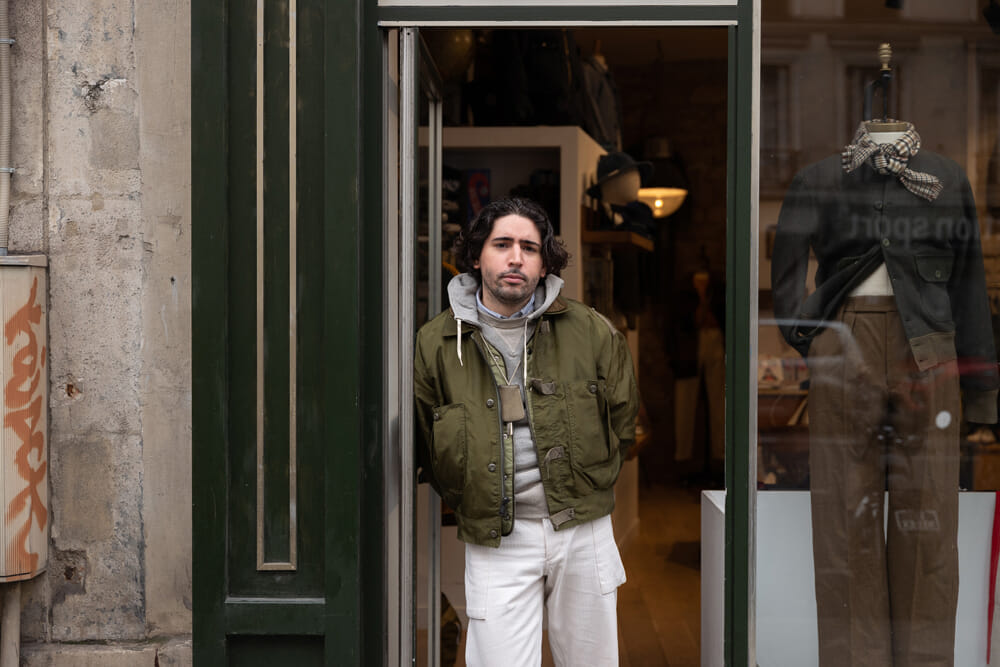

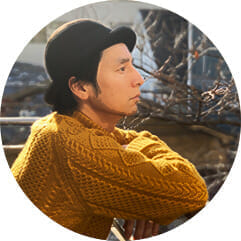
![Series 【 Parisian 6 years of shop-hopping...] Vol.6_LUTAYS](https://www.houyhnhnm.jp/wp-content/uploads/2021/06/LUTAYS11-700x467.jpg)
![Series 【 Parisian 6-years store visit...] Vol.5_Laperruque](https://www.houyhnhnm.jp/wp-content/uploads/2021/05/Laperruque_001-700x467.jpg)
![Series 【 Parisian 6 years of shop-hopping...] Vol.3_DISTANCE](https://www.houyhnhnm.jp/wp-content/uploads/2021/03/DISTANCE21-700x467.jpg)
![Series 【 Parisian 6 years of exploring stores.] Vol.2_THE COOLEST MAN YOU KNOW](https://www.houyhnhnm.jp/wp-content/uploads/2021/02/tcmyk_0001-700x467.jpg)
![Series 【 Parisian 6-years store visit...] Vol.1_Super Stitch](https://www.houyhnhnm.jp/wp-content/uploads/2021/01/SuSp_0001-700x467.jpg)

